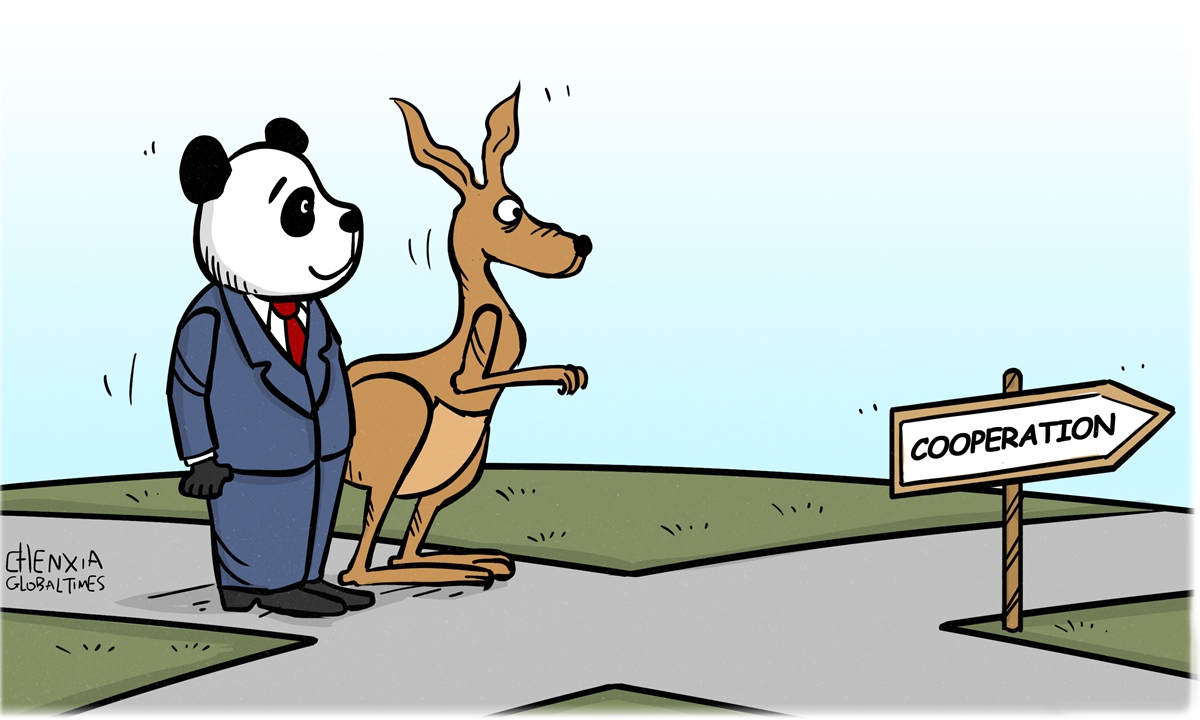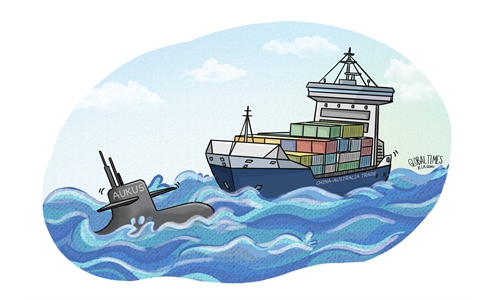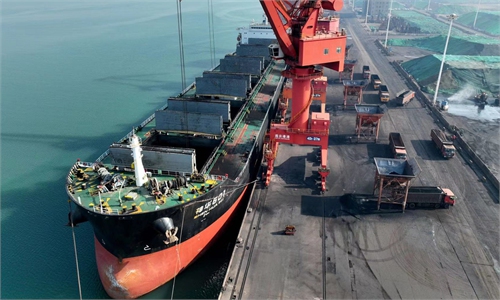
Illustration: Chen Xia/GT
Since Australian Prime Minister Anthony Albanese came to power, China-Australia political relations have begun to thaw. Ramping up exchanges and cooperation between the defense departments of both countries is conducive to resolving differences and enhancing mutual understanding.The working group of the Chinese Ministry of National Defense (MND) on Wednesday held the eighth defense coordination dialogue with the Australian side in Canberra, according to the MND. It is reportedly the first formal meeting of defense officials between the two countries since 2019.
This is a sensitive period for China-Australia relations due to new developments of the AUKUS deal. Washington, London and Canberra on March 13 announced an arrangement for Australia to acquire a conventionally-armed, nuclear-powered submarine (SSN) capability through the AUKUS enhanced security partnership.
It is widely believed that the AUKUS nuclear submarine deal is aimed at China. Timur Fomenko, a political analyst, described it as "an imperialist crusade against China." The recent moves surrounding AUKUS have cast a shadow over China-Australia relations.
At such a sensitive time, it is reassuring to see defense officials from Beijing and Canberra willing to communicate, which indicates that both countries have the intention to manage their differences and are reluctant to see the bilateral relationship return to a tense state, Chen Hong, director of the Australian Studies Centre at East China Normal University, told the Global Times.
The objective of US Indo-Pacific Strategy is to contain China, and AUKUS, as an important part, focuses on strengthening Australia's military attack capabilities, which poses a lurking threat to China.
Australia regards its alliance with the US as a cornerstone of its foreign and security policy. Against this backdrop, it will echo Washington on a wide range of issues. It is important for Australia and China to have communications and exchanges. It is believed that China has told Australia about its bottom line on core interest issues and has advised Canberra not to provoke China's core interests concerning the Taiwan question and the South China Sea issue.
Regarding the meeting of defense officials between China and Australia, the Chinese version of Voice of America reported that some so-called observers have suggested that Beijing's efforts to improve relations with Australia are largely aimed at alienating Australia from the US and impairing Washington's strength in its confrontation with China. According to Chen, such rhetoric deliberately hypes that China wants to drive a wedge between the US and Australia, which is nonsense.
In addition, some Japanese media outlets also badmouthed China-Australia bilateral ties. The Japan Times on March 3 published an opinion article entitled "Why there is no going back for Australia-China relations," claiming that "there are limits to how much [China-Australia] bilateral ties can improve… On the one hand, China's market holds less allure than in the past since Australian firms have found new buyers for their goods… On the other hand, Australia has growing national security concerns about China."
Japan has recently played a very proactive role in promoting US' strategy to contain China. Furthermore, Japan has strengthened its military ties with Australia through actions such as signing the Reciprocal Access Agreement, in a bid to enhance its military cooperation with Canberra.
Moreover, there has been a hot debate on expanding Japan into AUKUS. And it can't be ruled out that Japan will be included in the defense pact. In this context, Australia's close ties with China are at odds with Japan's intent. Japan's hype of the divergences between China and Australia is also to prevent the latter two countries from getting closer, according to Song Zhongping, a Chinese military expert and TV commentator.
What is the prospect of China-Australia relations? "The key is in the hands of Australia," Song continued. Xiao Qian, Chinese Ambassador to Australia, on Tuesday published an opinion piece in the Australian Financial Review, saying that "China and Australia have no fundamental conflicts of interest." China doesn't pose any threat to Australia's national security. Cooperation between China and Australia in various fields such as politics, economy and security is beneficial for both countries. Yet pursuing the Cold War mind-set to help the US contain China will do more harm than good for Australia.
Australia should keep sober and understand the importance of its relationship with China. As Australia is a sovereign power, China hopes that Australia will not succumb to any country or become a military pawn. It is believed that the Albanese administration has sufficient political wisdom to make decisions in line with its national interests.


